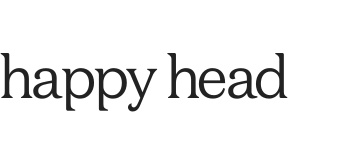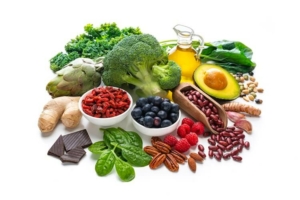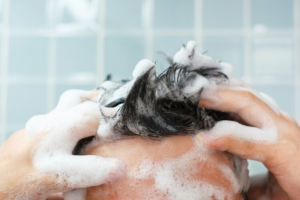Ask Me Anything With Dr. Ben Behnam: Healthy Lifestyle for Healthy Hair Growth
Our bodies are sophisticated machines that can tell us a lot about what activities or foods benefit us most. Whether or not we feel stressed or sluggish and not quite in balance can influence how our body responds to normal metabolic functions. And living a healthy lifestyle for healthy hair growth is the perfect place to start.
4 Lifestyle Habits to Boost Healthy Hair Growth
- Sleep. There are many studies about the impact of getting the standard 8 hours of sleep each day. Sleep helps our body with protein synthesis; so if we don’t get enough sleep, then we’re not able to create those proteins we need to build new hair growth.
- Sunshine. Everyone needs this, and most of us are deficient in Vitamin D. This vitamin is essential to promoting new hair growth. Why? Keratin, which is a hair protein, is created when the cells that make it have enough Vitamin D to use as energy. Our hair growth and shedding cycle is regulated by Vitamin D. For those new to Happy Head, we’ve formulated our new SuperCapsule™ with Vitamin D3 to get you the support for hair growth.
- Exercise. This is huge. It’s recommended that everyone get at least 30 minutes of exercise each day. That doesn’t mean you need to do box jumps all day, but even a brisk walk, swimming, or playing with your kids can help. Exercise keeps our blood flowing, improves our mood, and reduces stress significantly. To help with this, an exercise watch that tracks your steps or activity level just to get you in the habit of working out or being moderately active is great.
- Support. This is a bonus, but having a support system in your life can help with everything from your mental to physical well-being. Having support makes things like dealing with hair thinning and loss easier. Our bodies respond to positive reinforcement, and we’ve seen that in studies linked to mindset as we start anything new in our lives.
The ingredients in your hair growth solutions are important for stimulating dormant hair follicles, but those in your diet are just as important. Before you write your next grocery list, make sure
5 Hair-Healthy Ingredients to Incorporate Into Your Diet
- Iron. You can get this from leafy greens, dried fruit, whole grains, and lean meats. If you don’t have enough iron in your diet, you’ll likely see more shedding in your hair. Iron is what helps generate red blood cells that help to carry oxygen throughout your body. Oxygen helps keep our cells healthy so that we can create new cells like those in our hair strands. People who are deficient or anemic often also have hair loss. We see this more in women because of periods and pregnancy. Not having enough iron leads to shorter growth phases and even shorter hair lengths over time.
- Protein. We discussed this earlier, but whether you’re vegan or not, there are plenty of options to help you get the correct amount of proteins needed to improve hair growth. Healthy proteins not only support growth but also help to maintain stronger hair that’s resistant to breakage. Some options are lean meats, legumes, eggs, soy products, tofu, cottage cheese, nuts, berries, and shrimp (any lean fish).
- Zinc. This is a nutrient that helps your body take up and absorb the essential vitamins, minerals, and nutrients we’re talking about here. The body needs zinc to signal when it should absorb other nutrients and when it’s not present you’ll likely not get the most out of the healthy foods you’re eating. Where do you get it? Pumpkin seeds (great on salads), red meats, wheat germ, seafood (oysters), nuts, eggs, to name a few.
- Vitamin C. This vitamin is essential for building not only stronger hair follicles but it helps to rebuild collage and supporting a strong immune system. If you’re thinking about Vitamin C packets as the solve here, that shouldn’t be the only form of Vitamin C you’re getting. The reason being because they could be packed with sugar and other nonessential ingredients, but your body may not get all of what’s in these. There are so many other ways to get Vitamin C and natural is always better. Think oranges, lemons, bell peppers, broccoli, brussel sprouts, cabbage, white potatoes, strawberries. If you’re cooking any of these veggies, remember not to overcook them and kill the nutrients. Some of these it’s best to eat raw to get all you can out of them.
- Omega 3s. These are fatty acids which help with thicker hair growth over time. I love fatty acids like fish oil to reduce inflammation you may see in irritated scalps. When we see inflammation, it’s the body responding to a threat. So calming inflammation can free up your body’s resources to focus on what needs repair. Omega 3s are amazing for brain and heart function as a bonus.
These are just a few things you can incorporate into your everyday routine for a healthier lifestyle to support healthier hair growth. There are, of course, many other things you can do to accomplish that including adding a custom topical hair growth solution to your routine that can help. Once you get paired with a Happy Head dermatologist, we’ll help you find the perfect solution with a personalized treatment plan to get you started. Take our





